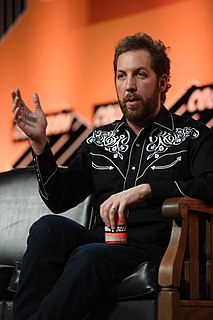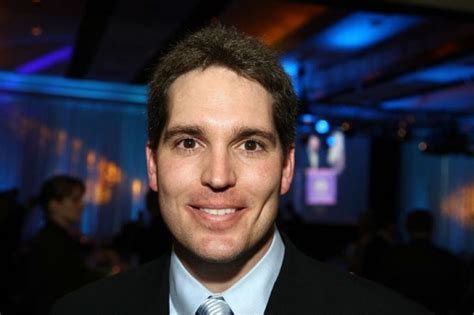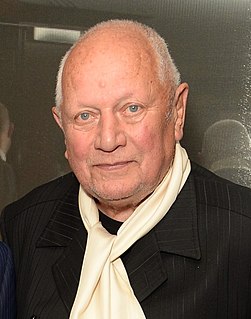A Quote by Douglas Rushkoff
Digital technology is both arousing and distancing. We don't look at the users on the other side as people. They aren't - they're just usernames, Facebook photos and Twitter handles.
Related Quotes
Digital media are biased toward replication and storage. Our digital photos practically upload and post themselves on Facebook, and our most deleted e-mails tend to resurface when we least expect it. Yes, everything you do in the digital realm may as well be broadcast on prime-time television and chiseled on the side of the Parthenon.
PR got to be much bigger because of the emergence of digital media. Now we have hundreds of people who are, in a sense, manning embassies for Facebook and Twitter for brands. So the business in effect has morphed from pitching stories to traditional media, to working with bloggers, Twitter, Facebook and other social media, and then putting good content up on owned websites.
If you don't have a Facebook, like, you're nobody. There's all of these sort of requirements now, and if you don't have all of these things - Facebook, Twitter, etc. - you're made fun of. And Twitter for celebrities... everything is just getting so personal. Pictures of yourself, of what you're eating for breakfast.
On the Facebook side, I think it's a bit of an evolution, in that that company, which has clearly done amazing things, was, I believe, as an outsider looking in, was founded on a culture that was obsessive about the users. And they built a service that is very valuable for users, and that is to be applauded.
A $200 million contract just got awarded to develop software to provide the Department of Defense with all these sock puppets who have fake Twitter and Facebook accounts. Why not create ten fake Libyan Twitter users and then get one journalist to follow them. But the problem is, of course, it corrupts the entire process. One of the caveats is that anything they write is going to be in a foreign language so it won't affect Americans. But that doesn't make any sense because: A) it can be translated pretty easily, and B) Americans also speak other languages.






































